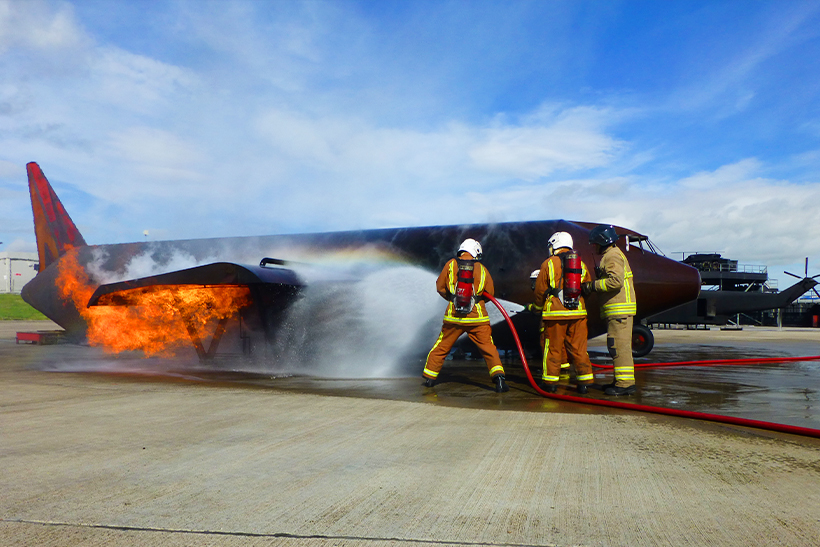FIREFIGHTER BRIDGING SYLLABUS
Course
A Structured Learning Programme designed for candidates from other rescue and firefighting services with knowledge of aircraft fire fighting and rescue skills; examples include firefighters who have completed MOD/Royal Navy Course within last 4 years confirmed by letter of recommendation/authenticity by Station Fire Officer/Fire Station Officer. Duration of course is 70 hours (excluding meal breaks).
Course aim
To enable delegates to acquire knowledge skills and understanding appropriate to the airport fire fighter role. Successfully completing the course will demonstrate compliance with the licensing and training requirements of CAP 168 Licensing of Aerodromes, CAP 699 Framework for the Competence of Rescue and Fire Fighting Service (RFFS) Personnel, ICAO Document Annex 14 and 9137-AN/898 Airport Services Manual Part 1 Rescue and Firefighting.
Learning outcomes
As a result of actively participating in the course delegates will be able to achieve knowledge, skills and understanding to demonstrate competence against CAP 699 Firefighter Role Map core elements using a combination of the following:
Apply the principles of Dynamic Risk Assessment and the Safe Person Concept;
Detail the characteristics of primary and secondary media and use at aircraft accidents/incidents
Discuss tactics and techniques that may be appropriate through review of aircraft accident/incident case studies;
Apply core skills involving deployment of delivery hose, use of ladders and tying knots and lines
Demonstrate use of fire service equipment safely and effectively on accident/incident scenarios involving aircraft simulators;
Demonstrate tactics and techniques that will safely and effectively resolve aircraft accidents/incident scenarios
Pre-Attendance requirements
The course is offered to any individual who are able to demonstrate competence including the use of breathing apparatus in the core skills of knowledge skills and understanding in the role of fire fighter. Delegates must be in possession of a valid passport or photo type driving license to enable issue of delegate airside pass.
Due to demanding physical nature of the course delegates attending the Firefighter Revalidation Course must provide evidence of medical assessment and are deemed fit and able to undertake course activities. Refer to C&LG Document titled Medical and occupational evidence for recruitment and retention in the Fire and Rescue Service or relevant national standard for non UK students
Assessment
Delegates demonstrating competence through a combination of written assessment, professional discussion and continuous observation will be issued with a Certificate of Competence detailing the CAP 699 Performance Criteria for the elements achieved within the training centre’s Structured Learning Programme that remains valid for four years if maintained in accordance with CAA guidelines.
